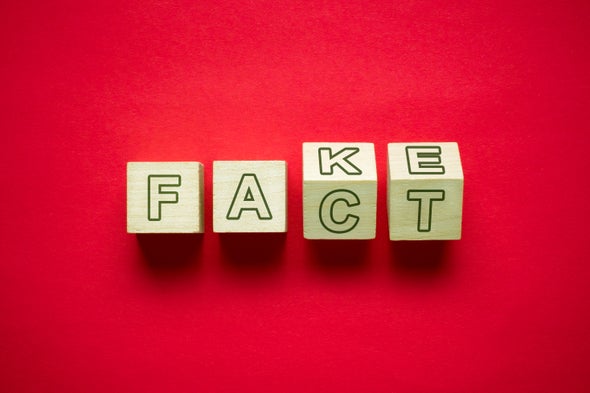
Deception and family
While the corona virus pandemic has separated loved ones inside their homes, it has by and large expanded on the web or via telephone correspondence with friends and family. For example, that my family’s iMessage bunch chain has never been busier. Family members are determining the status of one another, sharing updates, and giving some genuinely necessary lighthearted element.
However, now and again, family members and companions share poor data – regardless of whether it is terrible science identified with how to forestall the infection, exposed gossipy tidbits about urban communities being put on lockdown, or paranoid notions about the birthplaces of Covid-19. While any strain of deception isn’t perfect, falsehood identified with a general wellbeing emergency has a particularly perilous component to it. Here’s you can see How WhatsApp tightens limits amid Corona pandemic
NYT’s Rukmini Callimachi put it along these lines prior in the week: “I concede that it was somewhat entertaining when relatives, who don’t comprehend where to get confirmed news, succumbed to psycho tricks. Like the thought 9/11 was an inside activity or that the moon arrival was phony. We’re presently at a point where deception may cost [people] their lives.”
To be sure, awful data during a general wellbeing crisis represents a hazard to the individuals who succumb to it. So you will probably have the desire and feel the duty to address it. Be that as it may, it very well may be amazingly cumbersome to address falsehood or expose paranoid ideas when it is being shared by a family member or old buddy. So what’s the best way to deal with take? A few specialists offered their guidance..
Know this: Individuals need to share exact data
Prior to making any move, it is critical to recollect that a great many people have no expectation of sharing awful data. Truth be told, a great many people need to do the specific inverse of that. “The research,” MIT educator David Rand, who contemplates falsehood, let me know, “suggests that individuals truly would like to share just precise data. … The individuals on your family bunch chain, most web based life clients need to just be sharing stuff that’s accurate.”
So for what reason do individuals share terrible data? They probably won’t know better, and the kind of substance flowing during a wellbeing crisis may make them less wise, Rand stated: “There’s proof that all the more sincerely suggestive substance makes individuals less recognizing. Specifically, when individuals depend on instinct and feeling they are bound to accept bogus cases. Explanations, for instance, that are unnerving make individuals less slanted to stop and consider it.”
Be compassionate
“The initial step is to have a feeling of empathy,” BuzzFeed correspondent Craig Silverman, who has investigated bogus news for quite a long time, let me know. Silverman noticed that individuals are sharing data since they give it a second thought and are either attempting to help or feel like they are a piece of a bigger discussion. “People, particularly loved ones in bunch chats,” he noted, “they are doing whatever it takes not to be malicious.”
Emily Vraga, an educator at the College of Minnesota who examines wellbeing deception, revealed to me that examination she has directed has demonstrated that a dull true amendment is “equally as effective” as one in which the individual adopts an increasingly compassionate strategy. “So I think utilizing that positive compassionate tone is better in light of the fact that the amendment despite everything works and it doesn’t cause [the individual you’re correcting] to feel tossed under the bus,” she said.
Refer to definitive sources
Something else to remember is the source you are utilizing to address the falsehood. For example, your Trump-supporting uncle may be less disposed to accept outlets he sees as incredulous of the President. “If it originates from a news outlet they don’t care for, they’re not going to react well,” Silverman brought up, proposing individuals consider refering to sources like the CDC.
Since certain individuals may be incredulous of even the national government, Vraga prescribed refering to neighborhood sources. That could incorporate the state or city wellbeing division, or nearby news sources that may show up increasingly sound to the individual you are attempting to speak with.
Talk one-on-one
Rand said inquire about demonstrates that individuals “are increasingly responsive to revisions that originate from their loved ones contrasted with arbitrary people.” All things considered, he noted you “want to utilize language that imparts you are attempting to be helpful” and not angry.
Silverman proposed in the event that you have a relative or companion who has shared awful data that it may be smarter to connect secretly. “Maybe send them a message and state, ‘Hey, I saw you simply posted this. I have seen some data that appears to negate this.’ Consider how you can take it one-on-one out of an individual way and give them data from a source they are probably going to trust.”
“Pre-bunking” rather than de-bunking
Rand accentuated that his exploration demonstrated that “when individuals stop and consider things, they are in reality truly adept at determining what is valid and what isn’t valid, however only not as far as what they share.” Rand included, “If you simply push individuals to contemplate exactness, it can have a genuine impact.”
Rand’s point was that it tends to be useful to concentrate on helping take safeguard measures, rather than more than once managing exposing. He called it “pre-bunking.” So how would you do it? “Find some evident bits of information,” Rand prompted. “Then state, ‘Hey, I discovered this from the World Wellbeing Association. What do you think?’ And afterward individuals will understand that and it will get them to think about precision and sources.”
You have a duty
One thing everybody conceded to: You have a duty to help right awful data. “When the deception can truly harm people’s wellbeing, I do think we as a whole have a responsibility,” Silverman noted. “You don’t need individuals to do things that are awful for them or awful for society,” included Rand.
Also, Vraga recognized it isn’t in every case simple to address close family or companions. “These are connections we care about, individuals whose great sentiment we need to keep up and convey forward,” Vraga said. In any case, she stated, “It’s a method for paying special mind to one another, and it tends to be awkward at the time, however ideally over the long haul it’s accomplishing more acceptable than harm.”
Fake news stories are all over the internet–from cures to coronavirus to fake government announcements. So here’s your best bet to making sure you’re getting correct information.





